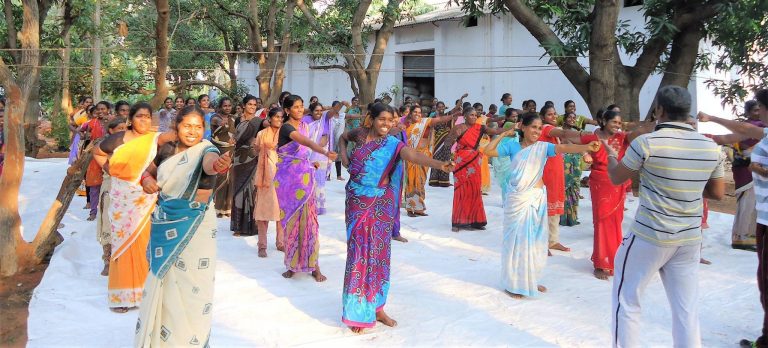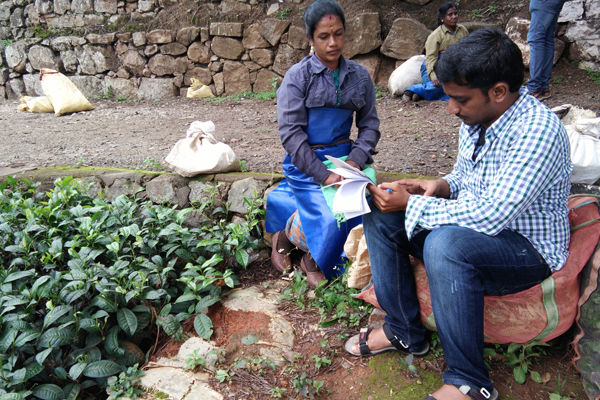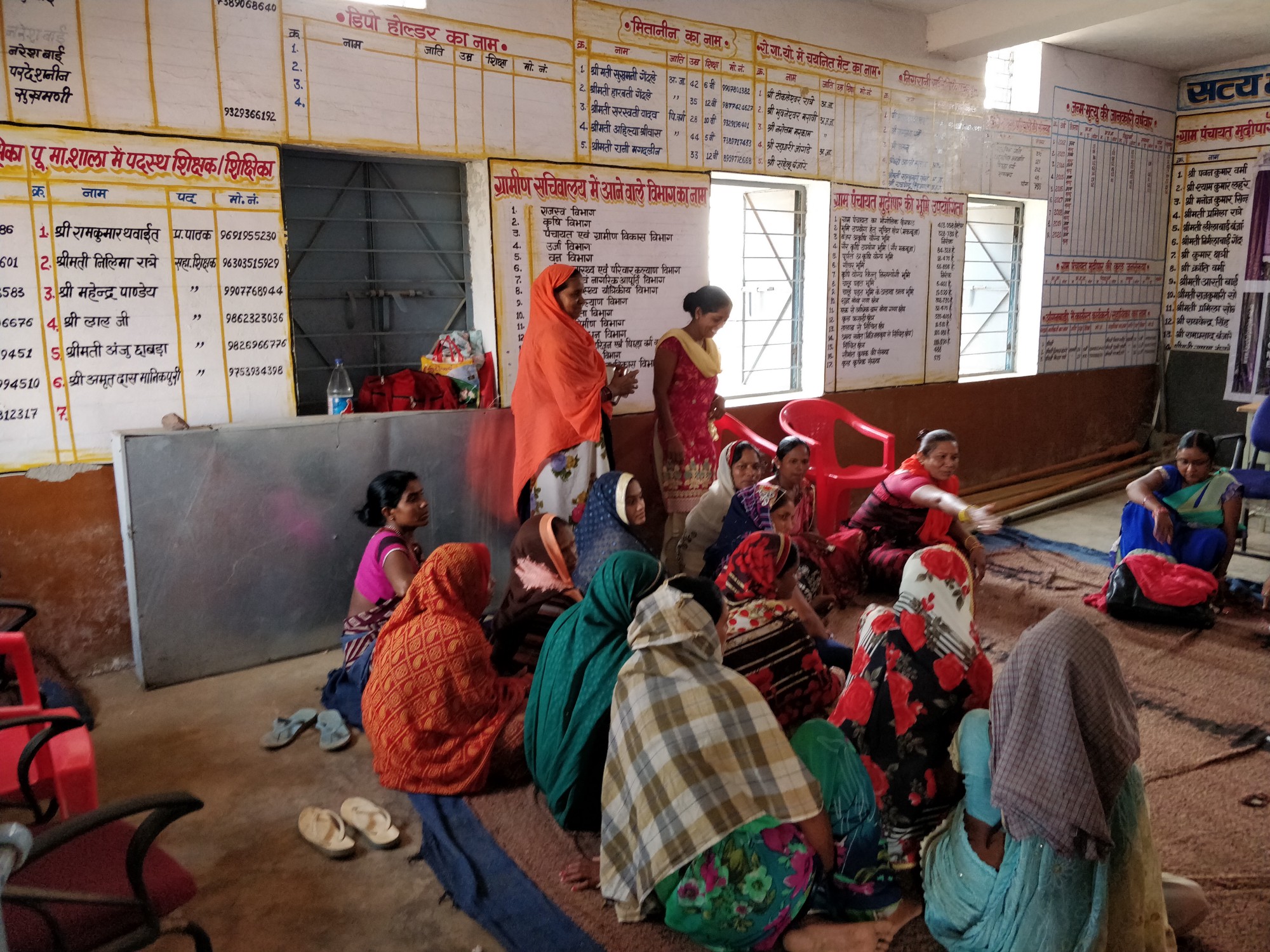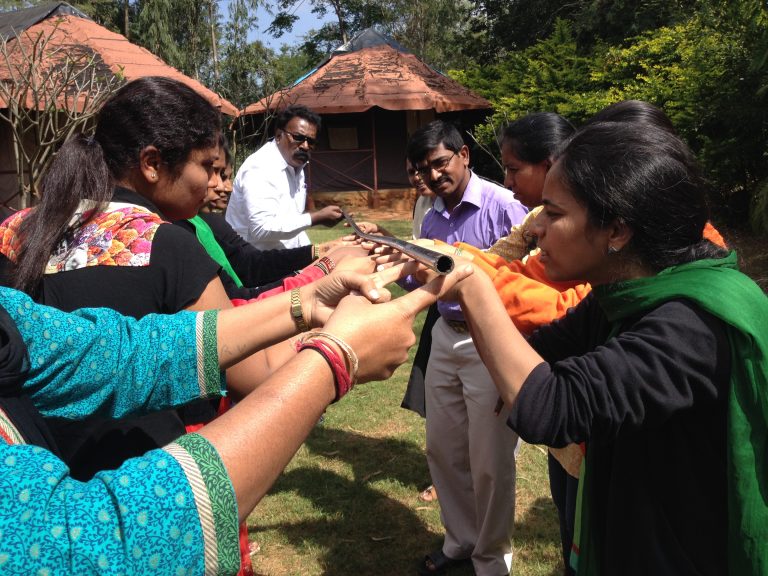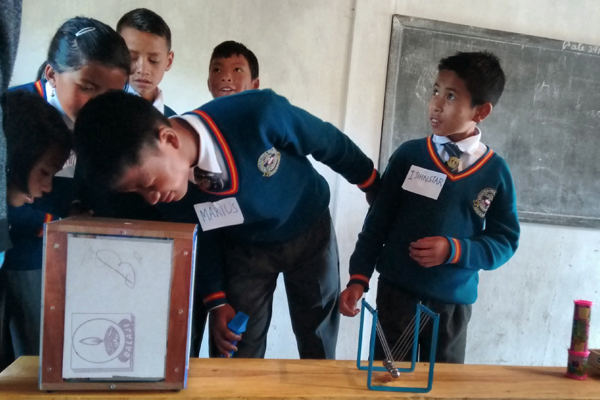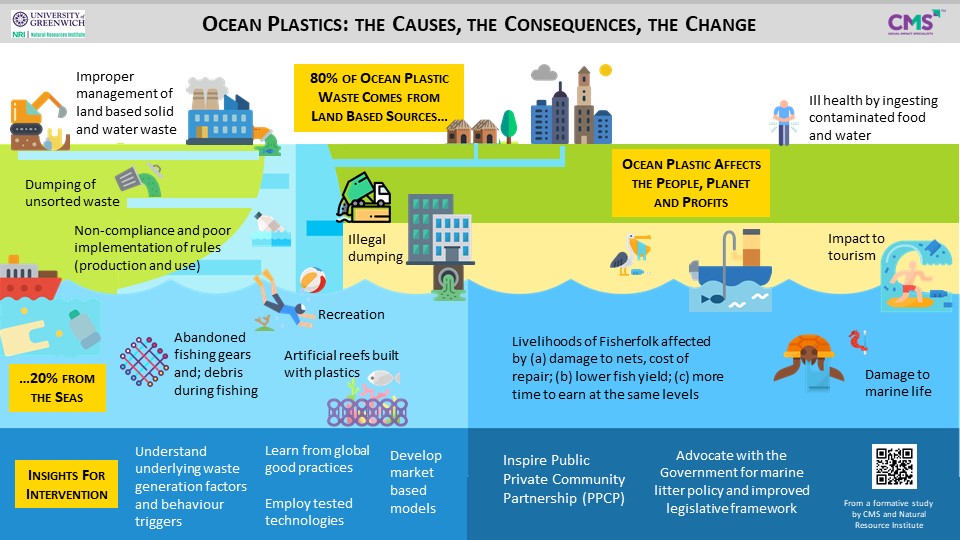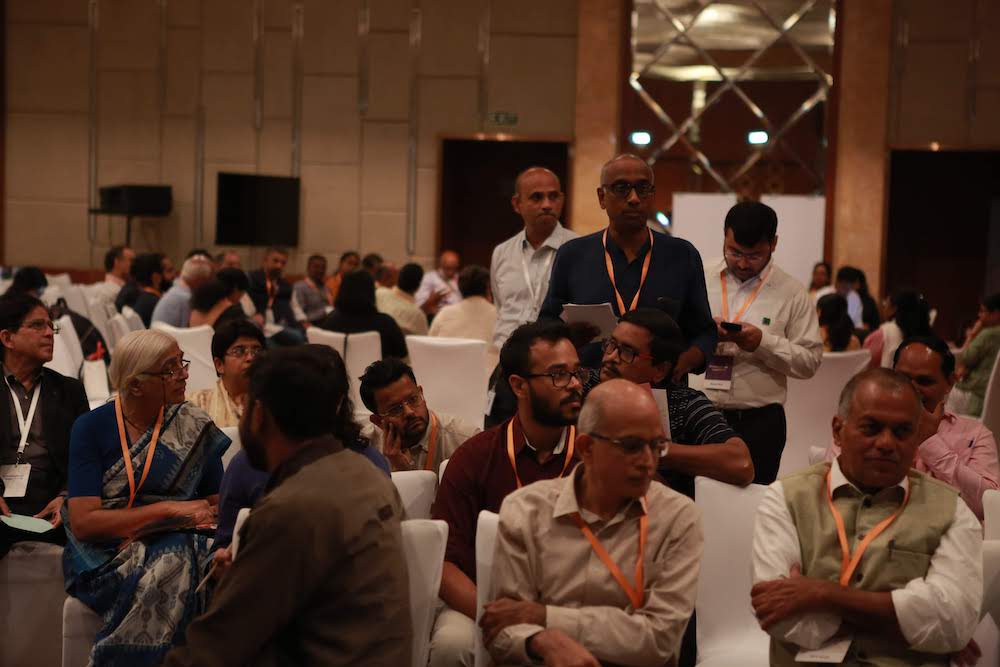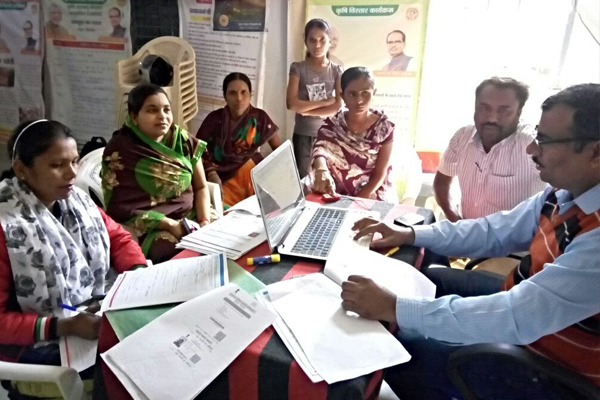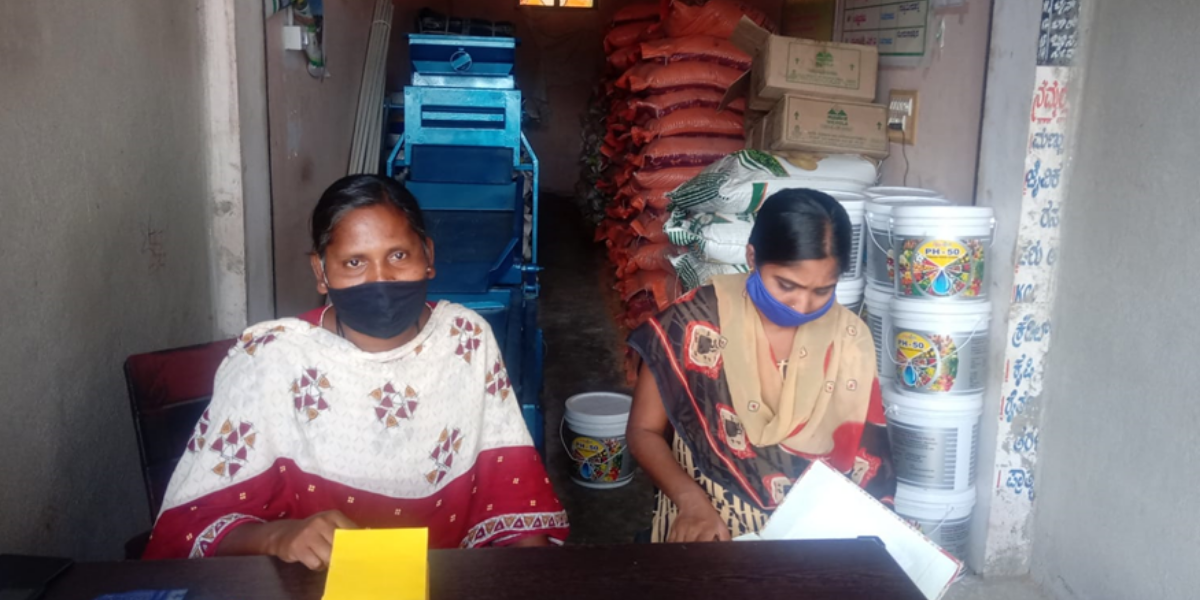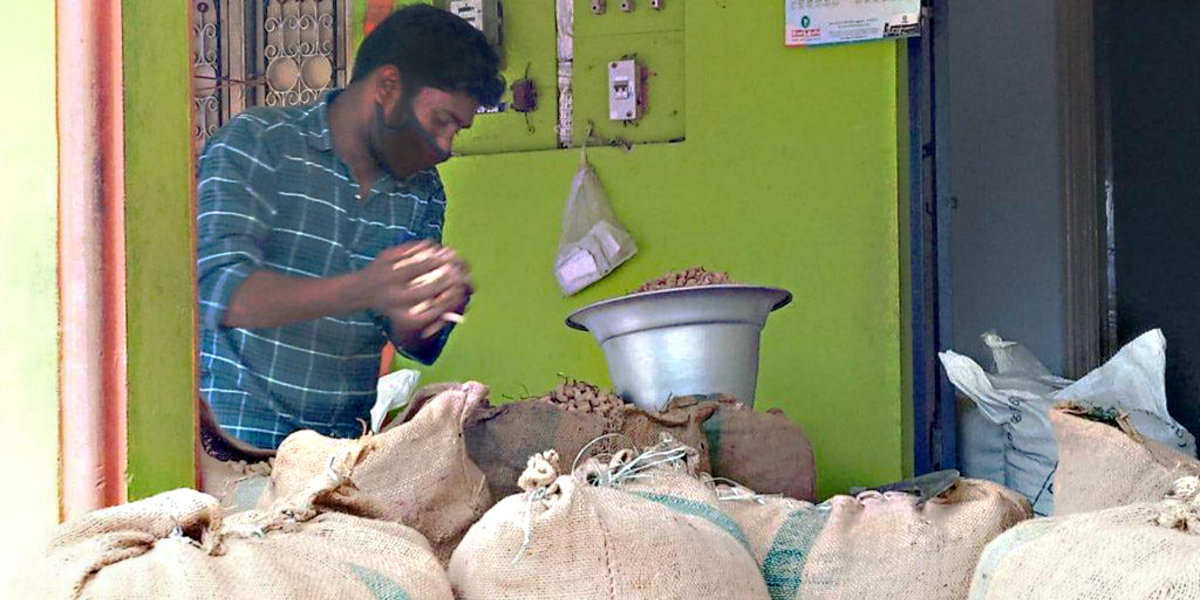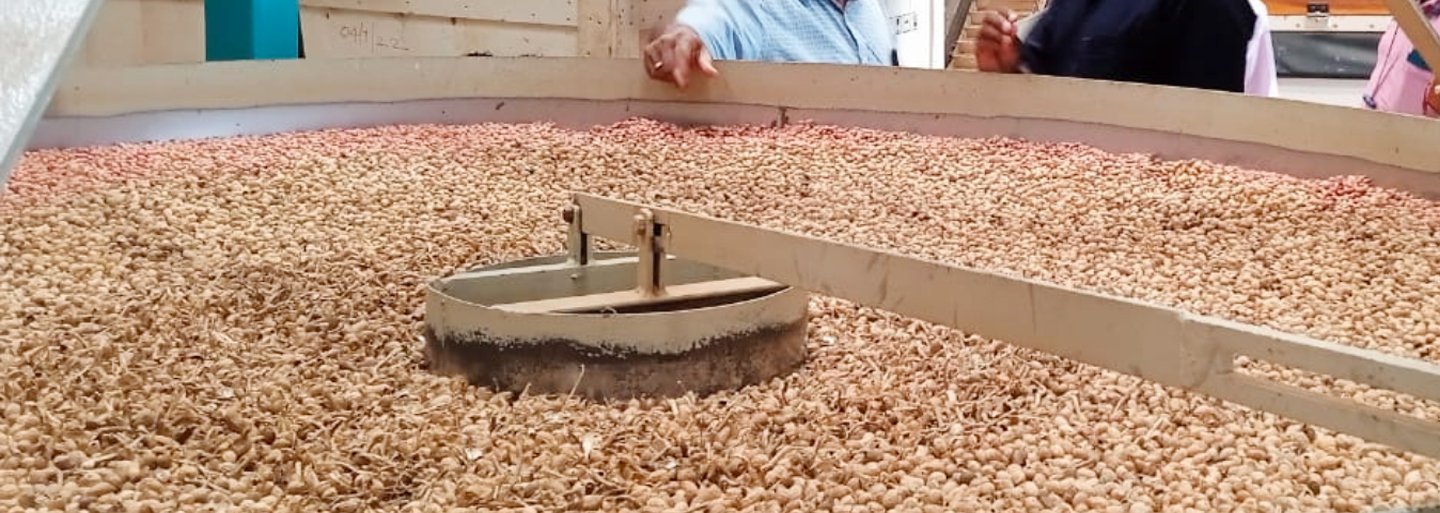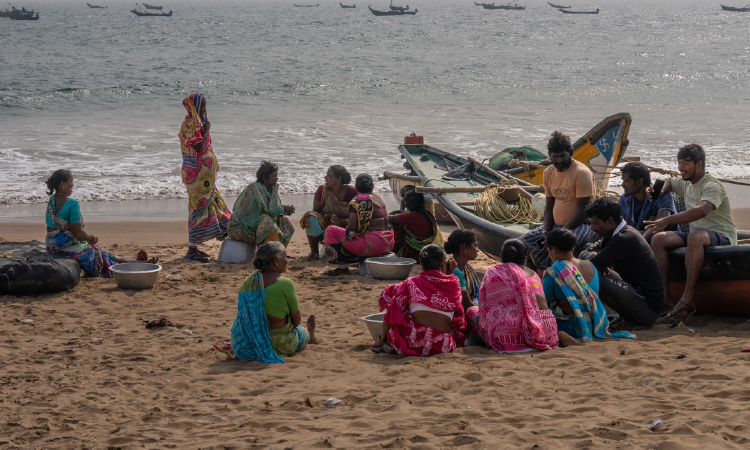Bastar Fresh: The making of a wild custard apple brand by the tribal women of Chhattisgarh
Nikhila Shastry and Niraj U Joshi
Dec 8, 2021
Over the past 5 years, Mahanadi Farmer Producer Company Limited (MFPCL) has set the stage to improve tribal incomes in a remote rain-fed region where none existed for Non-Timber Forest Produce value chains like custard apple, jamun, and tamarind. MFPCL, a 517-member strong tribal farmer collective in Kanker, Chhattisgarh, has made very encouraging progress in strengthening the custard apple value chain in the remote region by developing its own pulp brand and overcoming challenges arising from the seasonality of produce coupled with the nascent enterprising skills of Tribal women.
Bastar and its natural bounty
Bastar is a richly forested landscape, with undulating hills, water streams and is a predominantly tribal area. Over 70 percent of the resident population consists of the tribes Gond, Maria, Muriya and Bhatra, among others. Tragically, though rich in beauty, natural resources and tribal culture, the forests are today dubbed “insurgency/Maoist-affected”.
There is an abundance of wild fruit-bearing trees, medicinal plants, as well as other NTFP across the forests of Bastar, including custard apple, blackberry, tamarind and mango, among others. The abundance of wild custard apples was a perfect opportunity for MFPCL to add value and convert it into a business opportunity for the members. The MFPCL is a pioneer in the custard apple value chain in the region. This first-mover advantage enabled the FPC to stay ahead of its competitors.
Formation of MFPCL through partnerships with local governments and panchayats
The local office of NABARD had approached Vrutti (NGO) for promoting FPOs in Kanker. Meanwhile, Vrutti had also been awarded a grant from the World Bank’s India office to develop a marketplace for farmers in Chhattisgarh. Thus, MFPCL was established on November 15, 2014, with an initial shareholder base of 200 farmers, which has grown to 517 farmers to date. The organisation was supported by the Business Acceleration Unit (BAU), which is a cluster-level incubator under Vrutti’s 3-Fold Programme responsible for establishing a strong ecosystem for agriculture enterprises in the region. MFPCL is involved in input business activities through Agri input facilitation centres. Each centre caters to the adjacent 2-3 villages and is run by either a women’s Self Help Group or Farmer Interest Group (FIG). MFPCL has also established forward and backward linkages for various NTFP value chains. In 2017, MFPCL was recognised as a start-up by the Department of Commerce and Industries, Chhattisgarh and in 2018, it received the best FPO Award from NABARD.
On recognising the huge potential of NTFP as an income source, albeit seasonal, Satish Mishra, the BAU Head of Vrutti, brought it to the attention of the then (2014) Kanker District Collector, Shammi Abdi. It did not take long for him to convince her of the abundant custard apple production and its high value in the market. The district administration conducted research to estimate the custard apple’s potential. The survey reported the production of at least 30000 metric tons of custard apple in Kanker district alone. To further develop this huge potential of custard apple fruit as well as its’ by-products in the market, the FPC directors, shareholders and representatives of Vrutti were then sent on an exposure visit by the district administration and District Poverty Initiatives Project (DPIP) of Udaipur, where they also got hands-on training in custard apple pulp making. In 2015, MFPCL began making pulp. The initial year saw custard apple pulp production of 165 Kg. Currently, the production cost is approximately 100 Rs per kg, for which the FPC obtains a net margin of Rs 40 for every kilogram of pulp sold.
The relations established with various government departments, including institutions such as the Agricultural Technology Management Agency (ATMA), District Mineral foundation, State Rural Livelihood Mission, with the support of BAU and Vrutti, enabled the FPC to thrive in uncertain times. Several government agricultural schemes and funds from the District Mineral Foundation (DMF) helped MFPCL in the initial phase. Local government spaces were leveraged with the support of the Gram Panchayat to establish and run procurement centres in 23 villages.
Making of the Bastar Fresh Brand
The MFPCL began its value chain development in 2016. Leveraging the existing SHGs, the MFPCL with Vrutti trained these women SHGs from 23 villages in the procurement as well as the processing of custard apples. During the Custard apple season (mid-September to December), fruit procurement, grading as well as pulp production remains an all-women activity.

A woman being trained to harvest Custard apple in Kanker
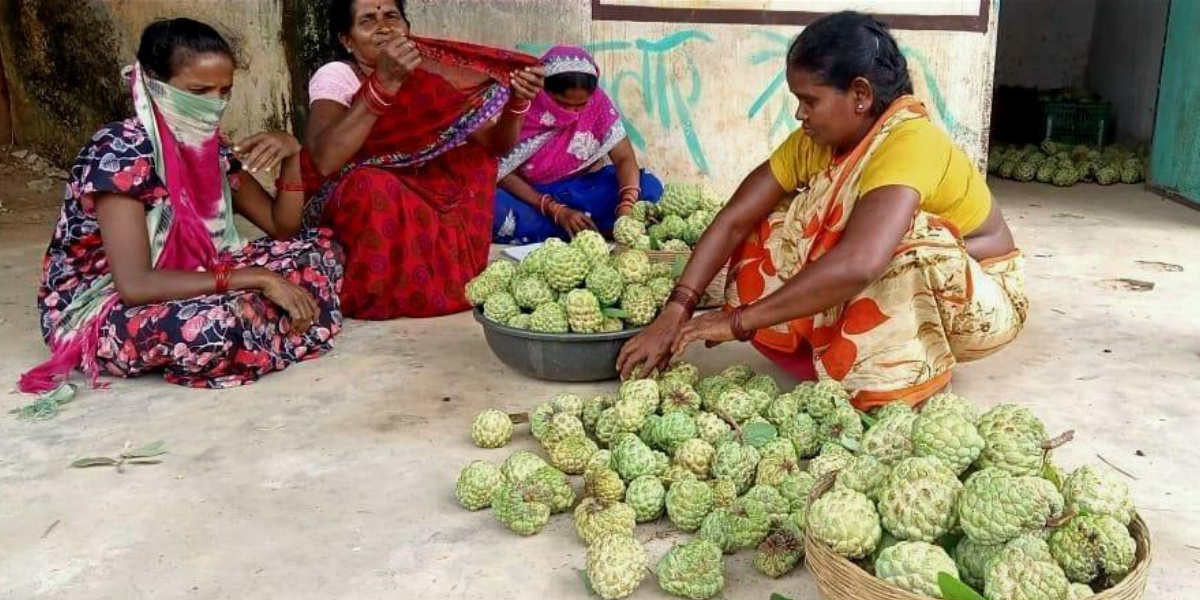
Women grading harvested wild custard apples
Women from one SHG per village pool their money to procure all the custard apples from their village, sort and grade the custard apples based on their size and other quality parameters. Superior Quality – Grade A fruits are then sold in the local and regional markets with the support of FPC. Whilst some Grade B and Grade C fruits are also sold as fruit, the rest are processed into pulp and supplied to buyers in Raipur, Indore and elsewhere. The pulp is then used to prepare custard apple milkshakes and ice cream.

Women getting ready to pack custard apple pulp in one kg packets
Initially, the pulp was branded as Kanker Valley Fresh, but as the procurement areas grew to include larger areas from other parts of the district, the branding was changed to reflect this and is now known as Bastar Fresh. The main source of income is from custard apple pulp sales, followed by jamun and mango pulp. Twelve pulp processing units were set up, of which MFPCL invested in two units and the remaining 10 were established through convergence with government schemes from the agriculture and District Mineral Foundation (DMF) funds. MFPCL’s pulp production, which began with 165 kg in 2016, now touches 10 tons annually and is growing, and the FPC is able to realise a net profit of Rs 3 lakh out of custard apple sales.
A test of resilience once support was withdrawn
The funding support from Vrutti to the MFPCL lasted for four years, after which the FPC struggled due to a lack of working capital. With insufficient funds, it became difficult to pay the salaries, thereby resulting in staff being reduced by half. MFPCL managed to raise some funds by availing working capital from nationalised banks. However, to scale its business, it currently requires a huge investment to have its own warehouse as well as a cold storage unit to preserve the fruit pulp. It also needs skilled human resources for developing business plans for the next three to five years and accessing funding support.
The pandemic severely impacted the operations of MFPCL and SHGs. The stock of almost 43 quintals of custard apple pulp from 2019-20 is lying unsold and expired in the deep freezer units with the SHGs. The SHGs could not process pulp last year as the previous year’s pulp remained unsold. With the lockdown restrictions easing in July 2021, markets have opened in Raipur and MFPCL has started procurement and processing in October with the hope of making up for the losses of the last couple of seasons as well as developing custard apple powder if funds permit. As the world is trying to regain some normalcy after the pandemic, the continuing demand for custard apples (fruit, pulp and powder) in both the domestic and international markets augurs well for organisations like MFPCL. However, MFPCL needs to constantly innovate to move forward and have contingencies built into its strategy to handle adverse situations in these uncertain times while building the necessary financial base.
Nikhila Shastry is Team Lead – Livelihood Practice at Catalyst Management Services, Bengaluru.
Niraj U Joshi is a Senior Research Associate with the Global Economic Dynamics and the Biosphere Programme, Royal Swedish Academy of Sciences, Stockholm, Sweden.

